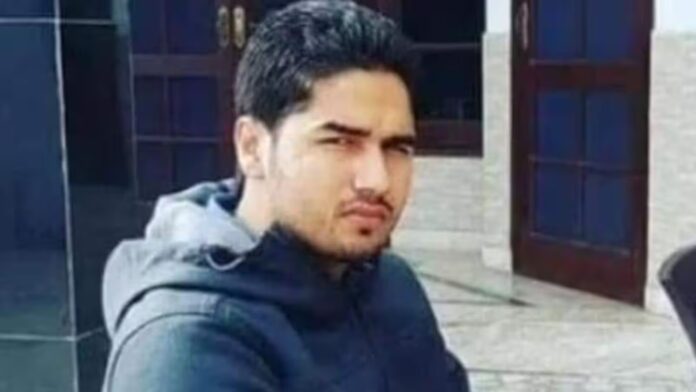
In a major development, Canadian authorities have arrested Arshdeep Singh, better known as Arsh Dalla, a prominent Khalistani terrorist who has been on India’s most-wanted list for multiple criminal activities. Dalla, acting as the leader of the Khalistan Tiger Force (KTF) after the death of Hardeep Singh Nijjar, was taken into custody following his suspected involvement in a shootout in Milton, Ontario, late last month, according to sources within Indian intelligence.
The arrest, confirmed by Indian security agencies, comes amid heightened tensions between India and Canada, following escalating concerns over Khalistani extremism. Dalla, who has been living in Canada for the past several years with his wife, was involved in an armed confrontation in Milton on October 27 or 28, prompting the Halton Regional Police Service (HRPS) to launch an investigation. Sources indicate that Dalla’s capture is part of the ongoing efforts by Canadian authorities to clamp down on extremist activities linked to the Khalistan movement.
Dalla rose to prominence as the acting head of the Khalistan Tiger Force, a militant group previously led by Hardeep Singh Nijjar, who was killed in 2023. Known for his extreme views and involvement in separatist activities, Dalla has been orchestrating a series of criminal operations in Punjab, even while residing in Canada. The Indian National Investigation Agency (NIA) has placed Dalla on its terrorist watchlist, attributing several targeted killings in Punjab to his directives. His alleged role in these criminal acts highlights the growing influence of transnational terrorism networks.
One of the more notorious incidents linked to Dalla occurred in September of this year, when he claimed responsibility for the murder of Congress leader Baljinder Singh Balli. He was shot dead at his residence in Punjab’s Moga district. In a social media post, Dalla accused Balli of having “ruined his future” and forcing him into the gangster world. He also claimed that Balli was responsible for his mother’s detention by police, which he cited as a driving force behind his vendetta.
Over the last three to four years, Dalla has allegedly coordinated multiple criminal activities in Punjab from his base in Canada, including targeted killings and the formation of terrorist modules. The Punjab Police had previously dismantled several of these KTF-backed modules, seizing Improvised Explosive Devices (IEDs), hand grenades, and various arms and ammunition from his close aides. His arrest is seen as a significant breakthrough in efforts to curb the spread of Khalistani militancy in India and abroad.
The arrest also coincides with increasing anti-India activities by Khalistani groups in Canada, including the recent attack on the Hindu Sabha Mandir in Brampton on November 3. The incident drew strong condemnation from the Indian government and sparked protests by Hindu groups in Canada. The Indian government urged Canadian authorities to take strict action, expecting those responsible to be prosecuted.
The diplomatic tensions between India and Canada have been rising ever since Canadian Prime Minister Justin Trudeau alleged the “potential” involvement of Indian agents in the killing of Khalistani extremist Hardeep Singh Nijjar. The accusation, made in September last year, was strongly denied by India, and relations between the two nations have remained strained ever since. Dalla’s arrest adds another layer to the ongoing diplomatic friction, as India closely monitors the case while urging Canada to take firm steps against extremist elements operating within its borders.
Dalla’s capture marks a significant moment in the crackdown against the Khalistani movement, with both Indian and Canadian authorities now poised to determine the extent of his influence and network. Indian agencies are coordinating with Canadian officials to gather further details, with the hope of mitigating future threats and ensuring justice for the victims of Dalla’s violent actions in Punjab.

